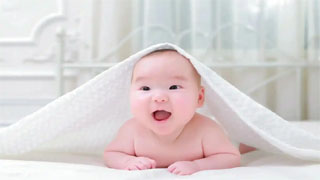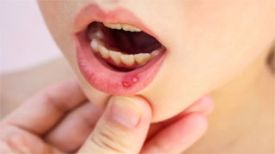
Article excerpt: "Traditional Chinese Medicine Ancient Methods for Infant and Child Health Preservation"
Generally, people's bodies do not sweat under normal circumstances. Unless they are active or after eating, the human body will sweat. Another situation is that when the above mentioned morbid conditions, such as tuberculosis, are easy to sweat after a cold, which is a reaction of the body's self-regulation ability. And the sweating syndrome mentioned here refers to an abnormal state in which the body repeatedly sweats when the temperature does not change much in a quiet state. Traditional Chinese medicine calls this state sweating syndrome.
Self sweating and night sweats
Sweating can be divided into two types, one is night sweats. Some children sweat all over when they sleep at night, but when they wake up, they don't sweat anymore. This is called night sweats, which belong to yin deficiency. Another type is that it is easy to sweat both day and night, which is called self sweating and belongs to yang deficiency.
The cause of spontaneous sweating is yin deficiency, which can be caused by various factors. If there is a deficiency of qi and yin, there may be congenital deficiencies or postnatal malnutrition. Yin deficiency in children is closely related to kidney qi deficiency, and this situation is related to improper care. For example, eating spicy food, not paying attention to rest, and having dry stool may all cause symptoms of yin deficiency and internal heat.
Another type is the accumulation of heat in the heart and spleen. Some children may find that they do not have symptoms of yin deficiency, but they have accumulated heat in their body, with a relatively red tongue, hot hands, feet, and heart, and a restless heart. Their diet is mainly composed of meat and high calorie, high protein foods such as spicy and grilled foods, which are related to the heart and spleen, but not yin deficiency.
Several key points of diagnosis:
In a quiet state, sweating profusely or even profusely is known as hyperhidrosis. It's easy to distinguish, for example, it's normal for a child to sweat when they play or play, but when they sit or lie quietly and sweat a lot, it's pathological. Night sweats are easy to distinguish. When a child wakes up and touches the pillow, or finds a wet patch on the area they have slept on, it is called night sweats.
Heart spleen heat accumulation type
Night sweats are the main symptoms, accompanied by spontaneous sweating. When a child sweats, it is mainly above the neck and not below. This type of sweating is usually a manifestation of excessive internal heat, as the fire energy moves upwards. It is easy to explain from the perspective of Western medicine, because the blood circulation in the head is relatively rich. Once the blood circulation maintains a certain temperature, it will not become cold. In addition, from the perspective of traditional Chinese medicine, the head and face are the convergence of various yang meridians. All yang meridians run upwards and concentrate on the head. Therefore, when yang qi runs upwards, there is heat in the spleen stomach heart meridian. This heat flows up along the meridians, making it easy for the head to sweat.
Some children tend to sweat easily on their hands, feet, and soles, with their palms and soles being particularly hot. Such children's behavior is that they like to hold something cool in their hands, which makes them feel particularly comfortable.
Dietary therapy formula:
Bamboo Leaf Floating Wheat Soup. Take 3 grams of bamboo leaves and 5 grams of floating wheat, boil them in 3 bowls of water, then continue to simmer over low heat for 15 minutes. Drink half a bowl each time, persist for a week, and drink twice a day. If constipation is present, you can add some radish and honey to relieve it. If the stool is sticky and wet, you can add some Job's tears. If the mouth frequently ulcerates, some children may have heart and spleen heat and mouth sores. If this condition is present, add some mung beans, red beans, and Job's tears.
Yin deficiency and internal heat type
The type of Yin deficiency and internal heat is mainly characterized by night sweats, and spontaneous sweating is rare. This type of child has a relatively thin and weak body, sweats a lot, has a listless expression, is annoyed, has little sleep, or sleeps unsteadily. At the same time, if it is severe, it is accompanied by low-grade fever, dry mouth and tongue, weak crying, burning hands, feet, and heart, or when the tongue coating is seen, the tongue coating is relatively light. Some children's tongue coating is mottled like a map when stretched out, which is a type of yin deficiency and internal heat.
Dietary therapy formula:
Wumei Floating Wheat Soup. 5 grams of black plums, 5 grams of floating wheat, and a spoonful of rock sugar. This flavor is very delicious, with a sour and sweet taste. Because it is sour and sweet, it can nourish Yin liquid. Boil 3 bowls of water, then simmer over low heat for 15 minutes. Drink half a bowl each time, twice a day, and persist for at least a week. The effect is very good.
Pulmonary dysfunction type
The typical manifestation of weak lung qi and defense qi is mainly self sweating, not night sweats. Even during the day, children are prone to sweating easily. Some children sweat all over when they move a little, which is a manifestation of weak lung defense. Sweating is obvious on the head and shoulders, especially when they move a little. They are tired and weak, with a less smooth complexion, easily fatigued and weak, and their complexion is not very moisturized. Children are particularly prone to catching colds and have weaker resistance.
Dietary therapy formula:
Sweet wheat jujube soup. 5 grams of licorice, 5 grams of floating wheat, 5 red dates, 3 bowls of water, continue boiling for 15 minutes after boiling, drink half a bowl each time, three times a day.
Licorice nourishes qi and the middle, jujube soothes the mind and blood, and floating wheat has the effect of stopping sweating, nourishing qi and stabilizing the surface, capturing the surface qi and preventing sweat from dissipating. Floating wheat can also nourish the heart and calm the mind. For people who have poor sleep, boiling water with floating wheat, licorice, and jujube can have a good calming effect.
Prevention and maintenance
1. It is necessary to engage in appropriate outdoor physical exercise. Some children may sweat easily due to their weak constitution, lack of exercise, and weak physique.
2. Pay attention to diet, do not eat large fish and meat, and do not eat too much eggs and milk, which are high in calories and can easily cause heart and spleen heat accumulation. Do not eat spicy, grilled, or fatty foods to avoid causing heat accumulation in the heart and spleen.
3. The indoor temperature and humidity should be moderate. If it is particularly hot, children often sweat, which can easily lead to weak lung health.
4. When children sweat, do not let the wind cool them down. After sweating, letting the wind blow can easily cause a cold of the wind cold type.
Disclaimer: This article is a sharing of health knowledge. The drugs, prescriptions, acupuncture and moxibustion and other treatment and health preserving methods mentioned in this article should be applied under the guidance of professional doctors, and should not be applied by yourself. We are not responsible for any issues arising from improper use.


